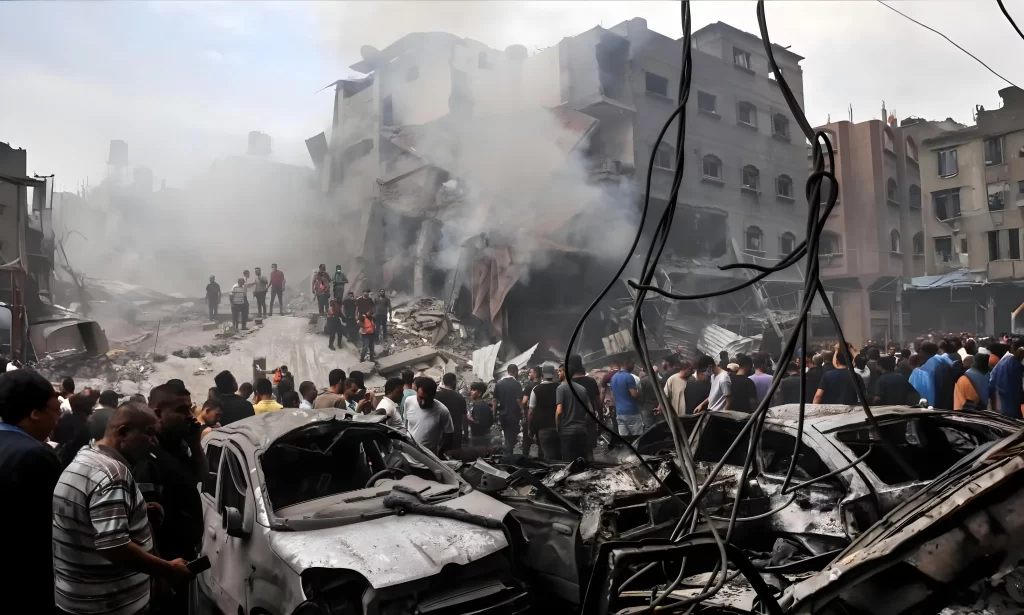The ongoing conflict between Israel and Hamas has reached a critical juncture, with intense military operations and devastating consequences unfolding across Gaza and Israel. This latest escalation marks one of the most severe phases in the long-standing conflict, highlighting the profound impact on civilians and the broader geopolitical ramifications.
Background and Recent Developments
The conflict, which has seen periodic escalations over the years, erupted once again in early 2024. Tensions between Israel and Hamas have been simmering, with sporadic exchanges of rocket fire and airstrikes. However, the situation took a sharp turn in recent days as both sides intensified their military actions.
Israel’s military launched a series of airstrikes across Gaza, targeting what it described as Hamas military infrastructure, including weapons storage facilities, command centers, and tunnels used for smuggling and military operations. The Israeli Defense Forces (IDF) have emphasized their commitment to neutralizing threats posed by Hamas, which they consider a terrorist organization.
Hamas, in response, has fired an unprecedented number of rockets into Israel, targeting major cities, including Tel Aviv and Jerusalem. The scale and intensity of these attacks have overwhelmed Israel’s Iron Dome missile defense system, resulting in significant casualties and damage within Israel.
Humanitarian Crisis in Gaza
The escalation has led to a severe humanitarian crisis in Gaza, with thousands of civilians caught in the crossfire. The densely populated enclave has witnessed widespread destruction, with residential buildings, schools, and hospitals suffering damage from Israeli airstrikes. The civilian death toll continues to rise, with many of the victims being women and children.
The humanitarian situation is further compounded by the blockade imposed on Gaza, which restricts the flow of essential goods, including food, medicine, and fuel. The international community has expressed grave concern over the deteriorating conditions, with calls for immediate ceasefires and humanitarian aid to prevent further loss of life.
Geopolitical Ramifications
The Israel-Hamas conflict is not just a regional issue but has broader geopolitical implications. The conflict has drawn reactions from various international actors, with some countries expressing support for Israel’s right to defend itself, while others have condemned the disproportionate use of force against civilians in Gaza.
The conflict also threatens to destabilize the region further, potentially drawing in other militant groups and neighboring countries. The international community, including the United Nations, the United States, and the European Union, has been actively involved in diplomatic efforts to broker a ceasefire, though these efforts have yet to yield tangible results.
The Road Ahead
As the conflict continues to escalate, the prospects for peace seem increasingly bleak. The enduring hostility between Israel and Hamas, coupled with the lack of a viable political solution, suggests that the violence may persist, leading to more suffering for both Israelis and Palestinians.
The international community faces a challenging task in navigating the complex dynamics of the conflict, balancing the need for immediate humanitarian relief with the long-term goal of achieving a sustainable and just peace. As the world watches, the situation in Gaza and Israel remains a stark reminder of the deep-rooted issues that continue to fuel this protracted conflict.

